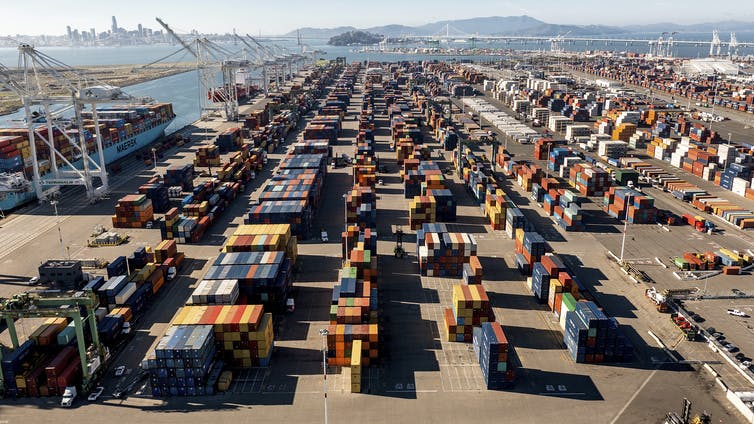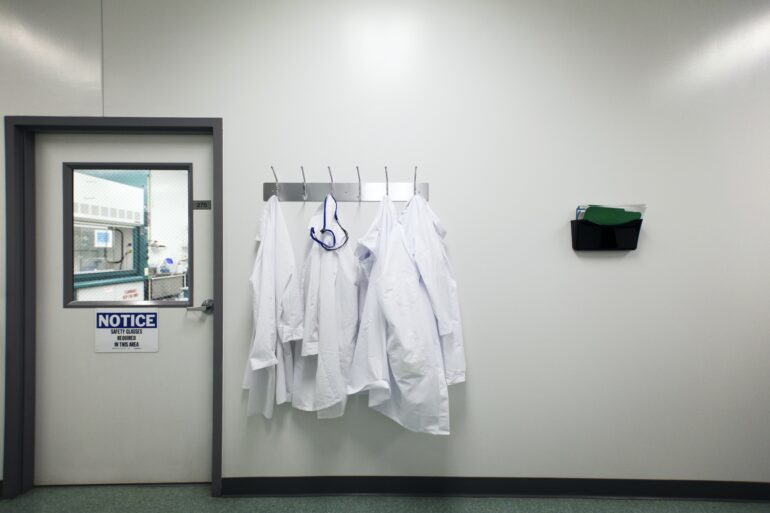Closures, remote work, supply chain issues and changing priorities have affected almost everyone’s lives at some point during the nearly two years of the coronavirus pandemic. The process of science itself was no exception. The many people who do the lab work, experiments and human studies that further scientific knowledge all faced challenges – many of which were unexpected.
To understand how the pandemic changed the process of science, we asked four researchers about their experiences over the past two years.

Early in the pandemic, a lot of scientific testing needed to be done to understand how masks could protect health care workers.
AP Photo/Mic Smith
Balancing public needs with science and mentorship
Christian L’Orange, Assistant Research Professor of Mechanical Engineering, Colorado State University
I am an engineer and aerosol scientist. People used to return a look of confusion when I said that, and prospective engineering students rarely had any idea that aerosol science was even an area of research. That all changed with COVID-19.
In March 2020, as the world was being told to stay home in the first weeks of the lockdown, the university and my lab were asked by the Colorado governer’s office to test masks being purchased for front-line workers.
In a matter of days, we pivoted all of our time to testing masks. This came at the cost of our research: Everything was put on hold. Nevertheless, we were proud to do it. I have had few experiences more gratifying than knowing I was making a difference in a time of need – however bittersweet.
A big reason I do the job I do is my love for research and the opportunity to mentor students. COVID-19 took both of those away for nearly two years. Research has begun again, and students are returning to the lab, but we won’t get that time back.
My colleagues and I were able to respond to the governor’s request for mask testing only because of the skills and experience that come from years of being in the lab – but what could those skills have led to if we hadn’t lost the past two years? What more could my students have achieved if they hadn’t lost that time?
Despite the good we have done, those questions still bother me.
However, I am optimistic that the pandemic might end up being good for aerosol research. I no longer get blank stares when I mention airborne particles, and maybe this pandemic will attract new bright students to a field about which I am so passionate.

Scientific supplies – from chemicals to plastic containers – were all affected by supply chain issues.
AP Photo/Noah Berger
Resource sharing to overcome supply chain issues
Erin Lavik, Professor of Chemical, Biochemical and Environmental Engineering, University of Maryland, Baltimore County
My lab – where my colleagues and I study biomaterials to control bleeding, deliver drugs and build tissues – was shut down…
